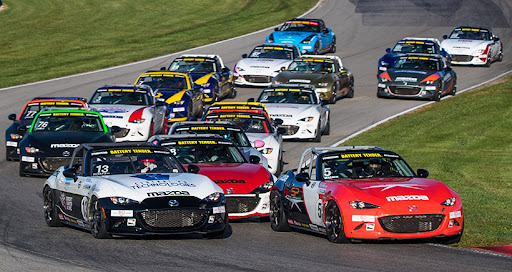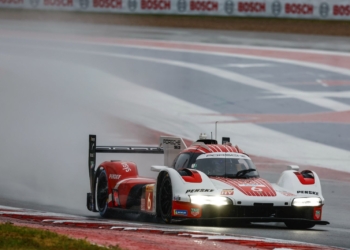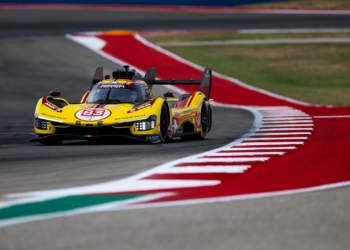Racing isn’t just speed. It’s precision, thrill, and machine mastery. But what cars are good for it? The answer depends on race type, budget, and your skill behind the wheel.
How car auctions make racing affordable
The hunt for a track-ready car doesn’t require deep pockets. You can check some of the most exciting deals through auto auction Massachusetts. Here, racers find lightly damaged vehicles, project builds, and hidden gems at prices that leave room for performance upgrades.
Why auctions are goldmines for racers
Car auctions give access to vehicles not available through traditional dealers. These include fleet returns, insurance write-offs, repossessions, and ex-performance vehicles. Often, buyers can inspect full vehicle histories before placing bids.
Types of car auctions available
- Public Auctions: Open to anyone. Great for new racers looking for budget builds.
- Dealer-Only Auctions: Require a license, but platforms like A Better Bid provide access to dealer-grade inventory for registered members.
- Salvage Auctions: Inexpensive vehicles needing repair. Ideal for mechanics and builders seeking potential race cars.
How to choose potential race cars at auctions
- Read the Vehicle History Report: Spot accident damage or mileage inconsistencies.
- Look for Performance Models: Focus on trims known for power and handling.
- Check for Upgrades: Aftermarket suspension, brakes, or exhausts can save you time.
Common auction finds for racers
- Nissan 350Z with aftermarket mods
- WRX STI with rally suspension
- BMW M3s from lease returns
- Porsche Cayman with minor cosmetic issues
Key attributes of a good racing car
Power-to-weight ratio
Acceleration isn’t only about horsepower. A lightweight chassis paired with a strong engine gives a racing auto its edge.
Suspension and handling dynamics
Balanced handling makes or breaks lap times. Independent suspension and low ride height allow cars to stay planted on corners.
Aftermarket support for mods
Want more speed? Better brakes? A racing car with strong aftermarket support makes modifications easy and budget-friendly.
Limited slip differential and its impact
Helps power both wheels evenly when cornering. Crucial for grip on track surfaces during aggressive driving.
Top racing cars for enthusiasts
The number of different cars that can be used for racing is almost endless but look at our list below for some of the best ideas currently around:
Honda Civic
This compact favourite punches above its weight. Affordable, easy to modify, and light on its feet.
Subaru WRX STI
Combines turbocharged power with all wheel drive control. Born from rally. Built for grip.
BMW M3
Power meets precision. From drift circuits to endurance racing, the M3’s engineering is timeless.
Volkswagen Golf GTI
Surprisingly sharp. This hatchback brings fun and control with a punchy engine and nimble platform.
Mazda MX-5 Miata
Beloved by racers for its rear wheel drive balance, low weight, and affordability. Perfect for learning car control.

The Mazda Miata MX-5 is an ideal choice to start with
Toyota Supra and GT86
The Supra owns drag race culture. The GT86 handles like a dream. Both offer unbeatable tuning potential.
Nissan Skyline and Skyline GT-R
Skyline legends like the R34 blend cult status with serious performance. The GT-R platform reshaped the racing world.
Porsche 911 and Cayman
Built for track days, the 911 delivers endurance racing legacy while the Cayman offers a more affordable mid-engine thrill.
Honda S2000
High-revving engine, rigid chassis, and sharp handling. Lightweight RWD brilliance.
Mitsubishi Lancer Evo
An AWD rally icon. Turbocharged, aggressive, and capable of being tuned into a track weapon.
Types of racing and what cars suit them best
There are many forms of racing available to the beginner racer, from club events on circuits, precision events in car parks, club rallies on both closed and public roads to even track days.
Endurance racing: Built to last
Porsche 911s, BMW M3s, and even reliable Civics make the cut for races that test durability and balance.
Drag racing: Straight-line monsters
Turbocharged muscle or a modified Supra? Straight tracks demand power, grip, and launch control.
Circuit and track day specials: Precision over power
Miatas, GT86s, and Caymans shine here. Light, balanced, and responsive.
Affordable entry points: Cheap sports cars that can be raced
Obviously budgets are usually the most important factor for someone starting out in racing, so let’s explore this topic in more detail.
What “cheap” really means in racing
Cheap doesn’t mean underpowered. It means accessible, modifiable, and competitive.
Low-cost builds from auctions with racing potential
Mazda RX-8, 350Z, even older Toyota Celicas offer strong track bones. With some love and mods, they become true racers.
The role of the driver: Skill > specs
Even the fastest car loses to a skilled racer in a slower machine. Cornering, braking, and throttle control define winners.
Learning to race on a budget
Start small. Track days. Autocross. Sim racing. It builds knowledge before building horsepower.
Conclusion: What cars are good for racing?
Speed isn’t exclusive to supercars. From Civics to Skylines, the racing world is open to anyone willing to learn, tune, and test their limits. With platforms like car auctions, especially those in Massachusetts, racers gain access to competitive models without the dealership mark-up.
Car auctions combine affordability with opportunity, giving both beginners and seasoned racers a way to build their dream vehicle while saving money for upgrades and mods.
FAQ
1. What cars under $10,000 are good for racing from auctions?
Miata MX5s, early WRX models, E36 BMWs, and older GTIs are popular, reliable picks.
2. Why are older Nissan Skylines still used in races?
Their engines, balance, and tuning potential make them ideal platforms despite their age.
3. Is it risky to buy a racing car at auction?
Only if you don’t inspect the vehicle history. Use verified auction services with condition reports.
4. Can a front-wheel drive car be good for racing?
Yes. Civics and GTIs dominate FWD classes. It depends on race type and driver skill.
5. What’s more important: power or handling?
Handling; you can’t use power if your car won’t stay on the track.







